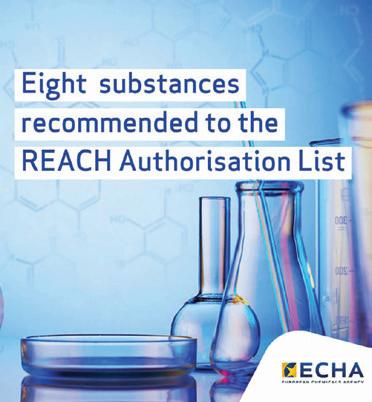
1 minute read
Breathing space for lead in REACH talks
European Commission officials are not expected to take immediate action to push through proposals for lead metal to be listed on an expanded chemicals authorization register in the near future — Batteries International has learned.

Advertisement
Battery industry leaders have been in talks with European Commission officials, after the European Chemicals Agency said in April it had submitted proposals for lead and seven other substances to be added to its REACH (Registration, Evaluation, Authorisation and Restriction of Chemicals) list — indicating that the substance would eventually be substituted and could only be used in the meantime with specific permission from the Commission.
Informed sources close to the talks told Batteries International on the sidelines of the ILA’s Pb 2023 conference in Athens on June 22 that, privately, Commission chiefs indicate there is “no appetite” to add lead metal to the list — for the time being — not least because it would trigger a huge administrative burden as thousands of applications would flood in and risk clogging up the regulatory process.
Preparing for REACH listing would also ramp up pressure on battery manufacturers and associated industries at a time when the sector is being urged to invest to support the EU’s energy transition, including increasing the use of wind, solar and battery storage.
Meanwhile, the political composition of the European Commission is set to change next year following European Parliament elections.
An ILA spokesperson said discussions had been held with the REACH unit of the Commission’s Directorate for the Internal Market, Industry, Entrepreneurship & SMEs (DG GROW), but declined to give details.
“The unit was keen to hear arguments and the basis of industry’s concerns and are aware of what is at stake,” the spokesperson said.
“From the discussions, we do not anticipate DG GROW progressing lead metal towards REACH authorization listing — at this time.”
However, the spokesperson stressed that initial talks have been held with only one unit of the Commission — so the feedback does not necessarily represent the views of other units involved with REACH.










